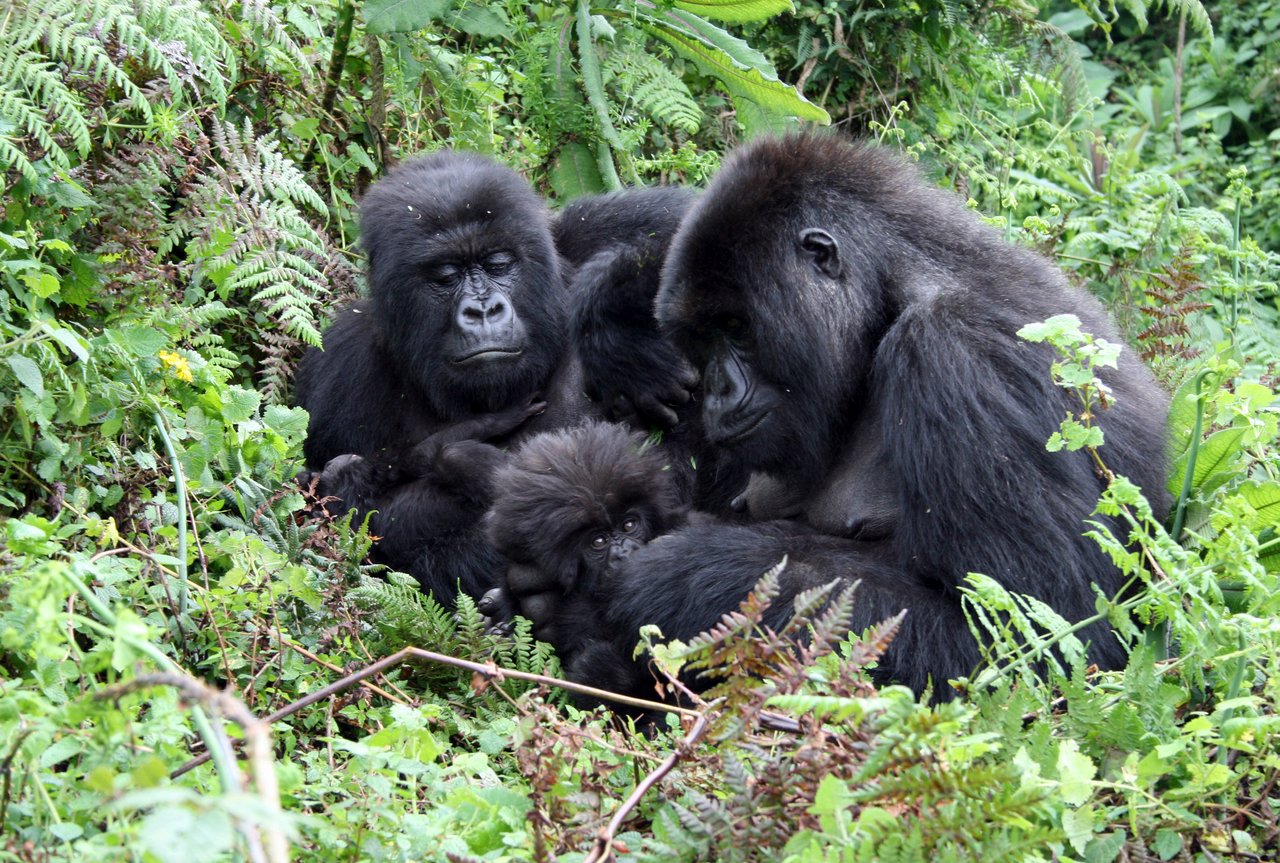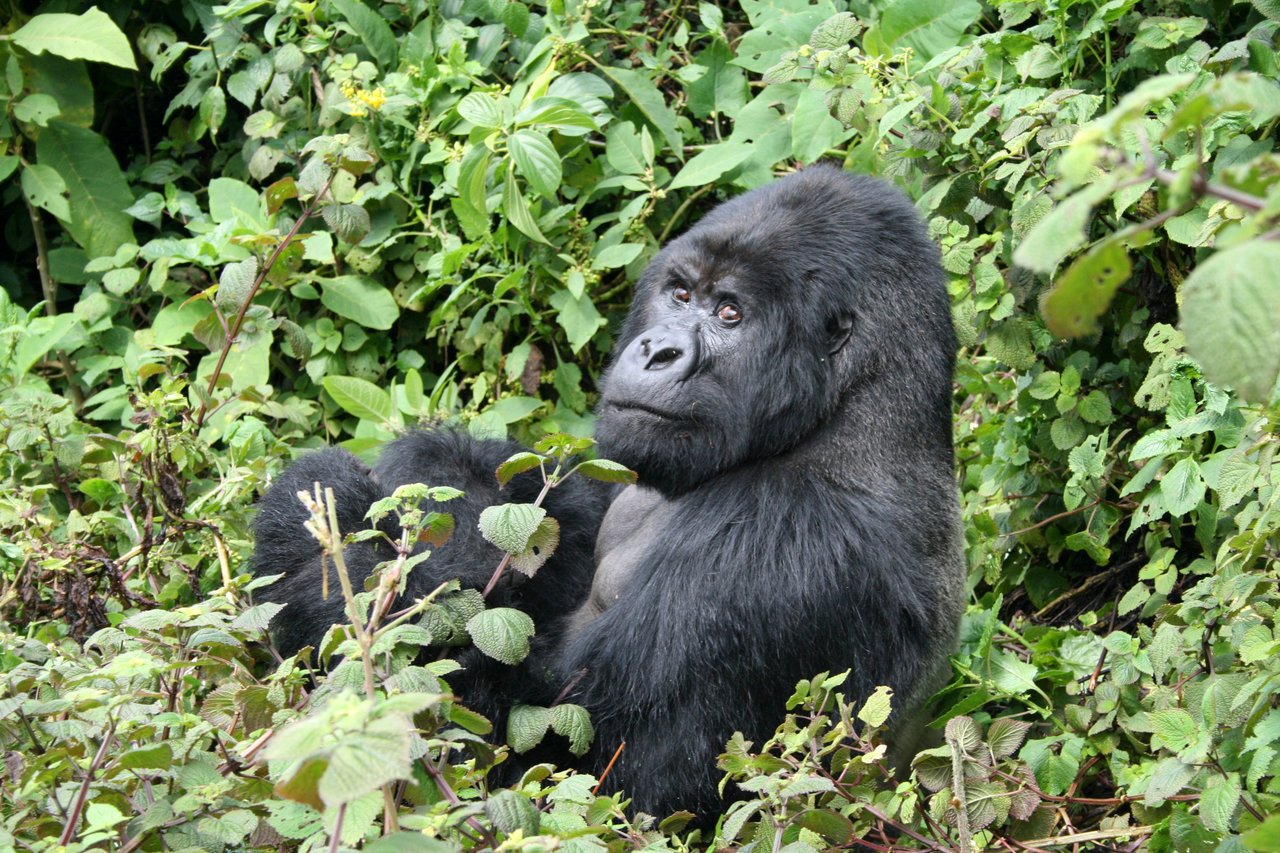World Rhino Day
Animal awareness days
Held on September 22nd, World Rhino Day celebrates all species of rhinoceros and raises awareness about the threats they face. Learn more here.

Animal awareness days
Held on September 24th, World Gorilla Day is observed internationally as an opportunity to investigate and understand these incredible primates. Here’s everything you need to know about gorillas, the threats they face, and the actions you can take to help.
World Gorilla Day is celebrated across the world on the 24th of September every year. On this day, individuals and organisations with an interest in gorilla welfare work together to raise awareness of the plight of gorillas.
World Gorilla Day is one of the newer animal awareness days, having only started in 2017. It’s a chance to increase public understanding of these majestic animals and the threats they’re facing in the wild, especially from the exotic pet trade.

Gorillas are large, powerful mammals, but they desperately need our help and protection.
Mountain gorillas are considered endangered with only around 1,000 currently living in the wild. They face habitat loss as humans are using up their land for living space and intensive agriculture. This brings gorilla populations into close contact with humans, leading to potential conflict.
The close genetic similarity between gorillas and humans also means that we can share diseases. This makes increased contact between gorillas and humans even more dangerous.
Though gorillas are hunted as bushmeat, they are more often caught up in hunts for other animals, getting injured in snares and traps left by poachers. One of the biggest threats to their survival, however, is the illegal pet trade. They are caught by poachers and sold to private owners who can’t take proper care of them, causing the animal to suffer both physically and psychologically.

All gorillas eat a mainly vegetarian diet and spend most of their day foraging and resting.
Eastern gorillas eat leaves, stalks, roots, bark, shoots, and occasionally ants, based on what’s available in each season. Western gorillas eat a lot of fruit, herbs, bark, leaves, and shoots. And, while most gorillas avoid waterways, some western gorillas have been known to wade into swamps to feed on aquatic plants.
Gorillas are the strongest primates in the world. They’re up to ten times stronger than humans and their bite is twice as strong as a lion’s. They can tear down banana trees with ease and have been known to escape from captivity by bending the iron bars of their cages.
A male gorilla weighs between 135 and 220 kilograms and is around 1.7 metres tall. However, a gorilla’s weight and size vary depending on species and subspecies. The largest gorilla in the world is the eastern lowland gorilla, also known as Grauer’s gorilla.
Gorillas live in the tropical forests of equatorial Africa. Their species and subspecies determine exactly where within this region they live.
Gorilla habitat consists of tropical forests in equatorial Africa. Lowland species live in lowland forests, while mountain gorilla habitat is found at altitudes above 1,400 metres in montane forests.
Gorilla lifespan is around 35 to 40 years in the wild.
For the first three months of its life, a baby gorilla is completely helpless. It relies entirely on its mother, sleeping in her nest at right and riding on her back during the day. At the age of 10, female gorillas are ready to become mothers and usually find a mate and a new family to live with. Male gorillas become silverbacks at about 12 to 15 years old when they leave their original family group to gather females and form their own family.
Gorillas are gentle giants. While they do display dominant behaviour (like beating their chests, standing on their hind legs, and using vocalisations like grunts and roars), this activity actually prevents violent interactions as it warns off potential competitors.
Gorilla habitat consists of tropical forests in equatorial Africa. Lowland species live in lowland forests, while mountain gorilla habitat is found at altitudes above 1,400 metres in montane forests.
Research into gorilla sentience shows that these animals are very smart and can use tools. For example, gorillas in a zoo were observed throwing sticks to knock down leaves and seeds that they couldn’t reach by climbing.
Studies have also shown that gorillas have self-awareness and that different gorilla groups have distinct cultural practices, relying to some degree on socially learned and taught behaviours. Gorillas also display different personalities, varying in their openness, dominance, sociability, and agreeableness.
Yes, gorillas are endangered. In fact, the IUCN Red List classifies both eastern gorillas and western gorillas as critically endangered.
Gorillas are increasingly threatened by habitat loss. As human development encroaches on their natural environment, gorillas lose the space they need to roam, feed, and reproduce. This shrinking habitat also forces them into closer contact with humans, leading to more frequent conflicts and a higher risk of disease transmission
Gorillas are also illegally hunted as bushmeat and — sometimes — accidentally caught in snares and traps left for other animals. The illegal pet trade is also an issue, as gorillas are caught by poachers and sold to private owners who can’t care for them properly.
According to the IUCN, there are just 600 mature mountain gorillas left in the wild.
Mountain gorillas are a subspecies of the eastern gorilla, of which there are just 2,600 mature individuals remaining. The number of western gorillas in the wild is unknown, but as the area and quality of their habitat continue to decrease, the IUCN suspects that their numbers are decreasing.
Animal awareness days
Held on September 22nd, World Rhino Day celebrates all species of rhinoceros and raises awareness about the threats they face. Learn more here.
Animal awareness days
Held on August 19th, World Orangutan Day is the perfect time to learn more about these great apes, their lives in the wild, and the threats they face.
Animal Awareness Days
Celebrate World Farmed Animals Day on 2nd October and discover its significance, learn about factory farming, and explore ways to protect sentient beings.
Blog
Discover the most interesting facts about pythons. We share python facts about their size, behaviour, habitat, threats, and...
Blog
Discover top ostrich facts as we answer your burning questions, including what do ostriches eat, how fast can...
Blog
Sheep are more intelligent and emotional than you might guess. Read these amazing facts about sheep to learn...
Blog
Explore the impact of factory farming on climate change and how plant-based or sustainable animal products support climate...